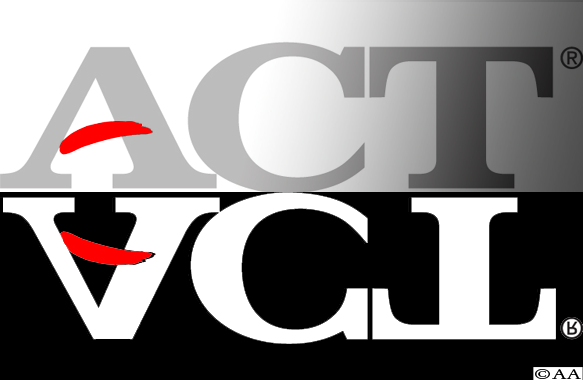By Michael Deshotels | Originally Published at The Louisiana Educator. December 16, 2013
This report is based on data provided by the Louisiana Department of Education.
Is it good policy to allow the Louisiana State Department of Education to take over schools from our locally elected school boards? Can the state really do a better job of running schools than locally elected school boards? Why have the leaders in the states of Michigan and Tennessee been led to believe that a state recovery school district modeled after the one in Louisiana is a great way to improve student achievement?
The underlying assumption that justifies takeover recovery districts is that the takeover schools will improve the performance of their students. Otherwise it does not make sense to allow a state government to take over schools established by local citizens through their locally elected school boards. My post of December 13 pointed out that average student performance as measured by LEAP tests in Recovery District schools rank among the lowest in the state, even after 5 to 8 years of state control.
Another way to judge the effectiveness of school takeover is by comparing ACT scores of students. 2013 is the first year that all eligible students at each public high school in Louisiana were required to take the ACT test. I wanted to examine how state run schools performed compared to local school board operated schools by looking at average ACT scores.
It took a formal public records request to get our DOE to give me the ACT scores for 2013 by school and by local school system. I had been asking for the data informally for several months. These days it is almost impossible to get data from John White’s DOE without threatening a lawsuit. After reviewing the results sent to me by the LDOE I can see why our state officials were not in a hurry to have the public and the news media compare the ACT scores in state run RSD schools with our traditional so called “status quo” locally run schools. You may review the entire state report for all schools by clicking on this link.
The New Orleans Recovery District schools produced an average ACT score of 16.3 for the 2012-13 school year even though an analysis of the eligible students based on student enrollment data indicates that only about 80% of those eligible actually took the test. This average score of 16.3 by New Orleans RSD schools would not be high enough to allow a student to enroll in any Louisiana 4 year college. This is ironic since many of the New Orleans Recovery District schools advertise themselves as college prep schools. Just look at some of the names of the schools scoring near the bottom of the state rankings:
Renew Accelerated High school: ACT average – 13.7
Joseph S. Clark Preparatory High School: ACT average – 15.2
Lake Area Early College ACT average – 16.4
Only four parish public school systems had lower average results than the New Orleans Recovery District. Those were East Carrol and Madison with 15.3, St Helena with 15.6 and Tensas with 15.7.
Statewide, I estimate that over 96% of eligible students in state public schools took the ACT. Our LDOE reports that the state average ACT score including private school students, was 19.5. My estimate of the performance of public schools only would be an average of about 19 based on the data supplied by LDOE. The chart I included in the link above provides data for every public high school in the state and also gives the average for each parish public school system. The lowest ACT results in the state were generally found to be at state run schools. Examples of low performers were Capitol High School in Baton Rouge with an average of 13.7, The School for the Deaf and Visually Impaired in Baton Rouge with an average of 14.9, and Pointe Coupee High School with an average of 15.3. Two of these are state takeover schools. In addition, I believe that if the New Orleans Recovery District had tested all eligible students, their average would have been even lower than the 16.3 reported.
The top performing school system in the state as measured by the highest average ACT score was St Tammany Parish with an average score of 21.1. St Tammany was trailed by Central Community Schools with an average of 20.3 and Zachary Community Schools with an average of 20.2. The highest performing non-selective public schools based on ACT were Mandeville High (St Tammany) with 22.9, Fountainbleau High (St Tammany) with 22.4, and Lafayette High (Lafayette Parish) with 22.2. The highest performing selective high schools were the Louisiana School for Math and Science in Natchitoches with an average of 28.7, followed by Ben Franklin High in New Orleans with 28.2.
One of the questions that should be answered by our elected officials is:
Returning to the questions posed at the beginning of this post, I would ask: Why is the state allowed to take over schools from the locally elected school boards if they continue to produce the lowest achievement in the state? Why are the Recovery District schools allowed to hide their low performance from parents? The web sites of the low performing RSD schools usually do not include their school performance scores or their state assigned letter grades. Parents in the New Orleans Recovery District are supposed to be allowed to choose their child’s school. How can they make informed decisions if schools hide their dismal performance from parents?
Originally when the state legislature passed the law creating the Louisiana Recovery District, it was contemplated that the State Department of Education would take over so called failing schools and would use best practices to get the schools performing at an acceptable level and then return them to the local school boards. Now however, BESE has a policy of keeping the takeover schools indefinitely even when they continue to perform poorly or leaving the decision to return to local school boards up to the charter governing boards. The taxpayers should ask why has our state department of education been allowed to so blatantly violate the intent of the law in this manner?
But the most important question for the nation is:












Leave A Comment